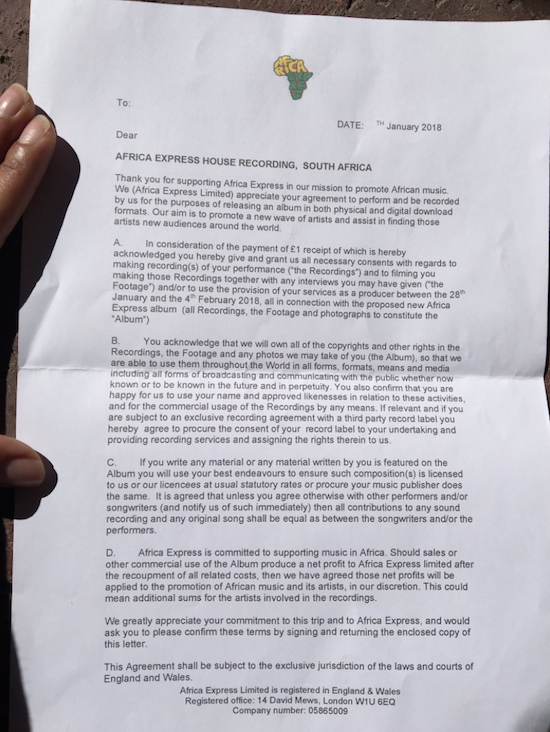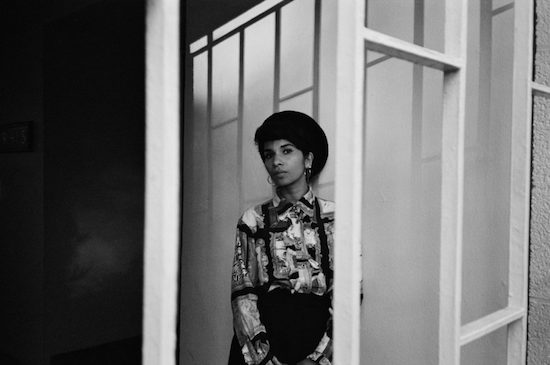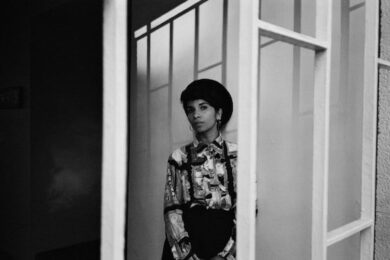Africa Express, the project spearheaded by Damon Albarn which aims to bring together musicians from across a number of genres and countries to collaborate, is at the centre of criticism over alleged unfair treatment of musicians.
Taking to Twitter today, musician Nabihah Iqbal shared details of the contract that all musicians who last week took part in the project in South Africa were presented with following their involvement.
"Last week I participated in Damon Albarn’s Africa Express project in South Africa," Iqbal wrote. "I got the chance to collaborate with local artists, making music, and it was so inspiring. The project was also a very eye-opening experience for me and it made me realise how things really work."
In a series of tweets accompanied by an image of the contract, Iqbal said that at the end of the project, all of the artists, including herself, were asked to sign off the rights to the music they all created to Africa Express for a fee of just £1.
"How is this ‘committed to supporting music in Africa’?", Iqbal asks in a follow-up tweet. "I have contacted the organisers of Africa Express stating that I cannot sign this contract until it has been amended so that the terms are more egalitarian."
She goes on to say that she has asked that Africa Express not only amend her contract but that of all the other artists who took part in the project.
Africa Express was founded in 2006, and the project has released four albums to date. It also sees groups of artists travel to the continent to work with musicians there. The latest trip last week concluded with a performance at Johannesburg’s Tennis Club and featured appearances from Yeah Yeah Yeahs’ Nick Zinner, Spoek Mathambo, Gruff Rhys, Ghetts, Nabihah Iqbal and more.
Petite Noir, who also performed, joined Iqbal in sharing the contract, saying "21st century colonisation is alive."
He added: "This is the contract that was given out to all the artists AFTER all the music from everyone was done. We had artists from around the world and South Africa come in and collaborate but mostly African artists. White people were heading the project."
Responding to the musicians’ disappointment, the organisation has issued a full statement on its official Facebook page. The statement explains that the project is not run for profit, adding: "As we pay all the travel, accommodation and other costs for Western artists joining us on trips, we ask them to volunteer their time. They can make a contribution to our costs if they are willing. We do not pay them. All our contracts are negotiated, discussed and agreed, not inflicted."
The statement also says that local musicians are treated differently. "We do pay them," it says. "We ensure that all profits made from recordings – after costs – go to artists and the promotion of African music."
You can read the full statement here. You can also view the contract below.




